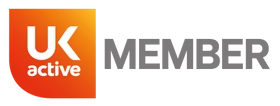Calories play a crucial role in maintaining energy levels, supporting bodily functions, and achieving health and fitness goals. Whether you're looking to lose weight, build muscle, or maintain your current weight, understanding your daily calorie intake is essential.
This guide breaks down how many calories you should eat per day based on various factors, including age, activity level, and fitness goals. We’ll also explore common calorie-related questions and provide expert-backed recommendations to help you optimize your nutrition.
How Many Calories Should You Eat Per Day?
1. Understanding Your Basal Metabolic Rate (BMR)
Your Basal Metabolic Rate (BMR) represents the number of calories your body burns at rest to maintain essential functions such as breathing, circulation, and cell production.
A general formula to estimate your BMR is:
-
Men: BMR = 10 × weight (kg) + 6.25 × height (cm) − 5 × age (years) + 5
-
Women: BMR = 10 × weight (kg) + 6.25 × height (cm) − 5 × age (years) − 161
Your BMR helps determine the minimum number of calories your body requires to function properly.
A note for personal trainers : While the BMR formula provides a good estimate, individual variations such as muscle mass, metabolic efficiency, and genetic factors can influence actual calorie needs. Some individuals may naturally burn more or fewer calories than predicted by the formula, which is why tracking body composition and energy levels over time is beneficial. Additionally, lifestyle factors such as stress, sleep quality, and hormonal fluctuations can also impact metabolic rate. As a personal trainer, it’s your responsibility to take these factors into account when helping your clients decide how many calories they should eat in a day.
2. Calculating Your Total Daily Energy Expenditure (TDEE)
Your Total Daily Energy Expenditure (TDEE) factors in your activity level to determine how many calories you need to consume daily to maintain your weight. Use the following multipliers based on your activity level:
-
Sedentary (little to no exercise): BMR × 1.2
-
Lightly active (1-3 days of exercise per week): BMR × 1.375
-
Moderately active (3-5 days of exercise per week): BMR × 1.55
-
Very active (6-7 days of intense exercise): BMR × 1.725
-
Super active (athletes, physically demanding jobs): BMR × 1.9
TDEE is highly influenced by non-exercise activity thermogenesis (NEAT), which includes daily movements such as walking, fidgeting, and general mobility. Individuals with higher NEAT levels often burn significantly more calories throughout the day compared to those with similar exercise routines but lower overall activity. Small lifestyle changes like taking the stairs, standing desks, and walking breaks can contribute to increased calorie expenditure.

3. Adjusting Calories for Weight Loss or Muscle Gain
-
To lose weight: Create a caloric deficit by consuming 500-750 fewer calories per day than your TDEE. This typically results in a weight loss of 0.5-1 kg per week .
-
To gain muscle: Aim for a caloric surplus by consuming 250-500 more calories per day than your TDEE while following a structured strength training program.
-
To maintain weight: Eat roughly the same number of calories as your TDEE .
The process of weight loss and muscle gain is not purely based on calories in versus calories out. Factors like macronutrient distribution, meal timing, and training intensity play a significant role. Consuming adequate protein supports muscle retention during a calorie deficit, while strength training optimizes body composition improvements. For those gaining muscle, a surplus should be moderate to minimize fat gain while maximizing lean muscle development. "Incorporating high-protein foods, such as eggs, can enhance feelings of fullness, aiding in weight management efforts." For example, read up more on the pros and cons of eating eggs before or after a workout to get your proteins up.

How Many Calories Should I Eat a Day to Lose Weight?
The number of calories required for weight loss varies based on individual factors. However, the general guidelines are:
|
Weight (kg) |
Sedentary |
Light Activity |
Moderate Activity |
Very Active |
|
50 kg |
1,500 |
1,725 |
1,900 |
2,100 |
|
60 kg |
1,800 |
2,000 |
2,250 |
2,500 |
|
70 kg |
2,000 |
2,200 |
2,500 |
2,800 |
|
80 kg |
2,200 |
2,400 |
2,700 |
3,000 |
To safely lose weight, reduce your intake by 500-750 calories daily while maintaining a high-protein diet and regular exercise.
We often have misconceptions about calories, such as believing extreme calorie restrictions lead to faster results. Trainers should emphasize the importance of sustainable nutrition strategies rather than crash diets. Teaching clients to focus on nutrient-dense foods, portion control, and long-term habits fosters healthier relationships with food and more consistent progress toward fitness goals. When you eat those calories also impacts how effective your strategy is going to be, "Understanding the optimal timing of protein consumption can aid in appetite control and recovery."
Is It Safe to Eat 1200 Calories a Day?
A 1,200-calorie diet is often recommended for short-term weight loss , particularly for women with a sedentary lifestyle. However, eating too few calories can:
- Slow down metabolism
- Cause muscle loss
- Lead to nutrient deficiencies
For active individuals or men, 1,200 calories may be too low and unsustainable. Instead, focus on creating a moderate deficit to maintain energy levels and support a healthy metabolism.
How Many Calories Should I Eat Per Day for My Age?
The average daily calorie intake varies by age and gender:
|
Age Group |
Men (Calories/Day) |
Women (Calories/Day) |
|
18-30 years |
2,400-3,000 |
1,800-2,400 |
|
31-50 years |
2,200-2,800 |
1,600-2,200 |
|
51+ years |
2,000-2,600 |
1,500-2,000 |
These estimates vary based on activity levels . Adjust accordingly based on your goals and lifestyle.

Best Way to Track Your Calories
To accurately track calorie intake, consider using:
- Apps like MyFitnessPal or Cronometer
- Food scales to measure portions
- Reading nutrition labels
As an added bonus, tracking calories for a few weeks can help you develop a better understanding of portion sizes and nutrient balance.
Calories Frequently Asked Questions (FAQs)
1. How many calories should I eat a day to maintain my weight?
Your TDEE (calculated using your BMR and activity level) provides an estimate of how many calories you need to maintain your weight.
2. Can I lose weight without counting calories?
Yes! While counting calories is helpful, you can lose weight by focusing on nutrient-dense foods , portion control, and mindful eating.
3. How do I burn more calories?
Increase your activity level by incorporating strength training, cardio, and daily movement (e.g., walking more, taking the stairs).
4. What happens if I eat too few calories?
Eating too few calories can lead to fatigue, muscle loss, metabolic slowdown, and nutrient deficiencies . It’s important to maintain a balanced intake.
5. Are all calories the same?
Not all calories are created equal. Nutrient-dense foods (e.g., lean proteins, whole grains, healthy fats) support overall health better than processed foods.
The Role of a Personal Trainer in Understanding Calorie Needs
Educating Clients on Caloric Needs
As a personal trainer, understanding caloric intake and nutrition fundamentals is crucial. Clients will frequently ask questions like:
- How many calories should I eat daily to lose weight?
- Is it safe to eat 1,200 calories per day?
- How many calories do I need to gain muscle?
A strong foundation in these concepts allows trainers to provide accurate, evidence-based guidance to clients, helping them achieve their fitness goals effectively.
Qualifications Needed to Offer Nutritional Advice in the UK
In the UK, personal trainers can provide basic nutrition advice but must have proper qualifications to offer detailed meal plans. To legally advise clients on nutrition for exercise and health , trainers must complete at least a Level 3 Personal Training Course .
For those looking to expand their expertise, pursuing a specialized nutrition certification can be beneficial. Options include:
-
Level 4 Nutrition Course – Advanced nutrition knowledge for performance and health.
-
Active IQ Level 3 Award in Nutrition for Exercise and Health – A great option for personal trainers who want to incorporate nutrition coaching into their services.
Clients trust personal trainers as fitness professionals, so it's essential to stay within the legal scope of practice. Providing nutrition education based on sound principles is encouraged, but creating meal plans without proper certification can lead to legal issues. Trainers should also consider ongoing education to stay up to date with the latest nutrition science and dietary trends.
How Personal Trainers Can Support Clients with Nutrition
While trainers cannot prescribe diets without certification, they can:
- Help clients understand calorie balance (deficit vs. surplus).
- Provide guidance on macronutrients (protein, carbs, fats).
- Recommend tracking tools like MyFitnessPal.
- Educate on meal timing to enhance performance.
- Encourage clients to consult registered dietitians for medical conditions.
By obtaining proper certifications , trainers can confidently answer calorie and nutrition-related questions, ensuring they stay within legal boundaries while maximizing their impact on clients’ fitness journeys.
Trainers should adopt a coaching mindset, guiding clients to make informed choices rather than dictating strict rules. Encouraging mindful eating, intuitive eating, and habit-building can be more effective than rigid dietary guidelines. Supporting clients holistically by addressing sleep, stress management, and hydration can further enhance their success.
In conclusion
Understanding your daily calorie needs is essential for reaching your fitness goals, whether you want to lose weight, gain muscle, or maintain your current body composition . By tracking your BMR, TDEE, and adjusting intake accordingly , you can create a sustainable approach to nutrition.
If you're looking to expand your nutrition knowledge , why not take it a step further? Enroll in Study Active’s Nutrition & Fitness Courses to gain professional insights into meal planning, metabolism, and fitness coaching.







